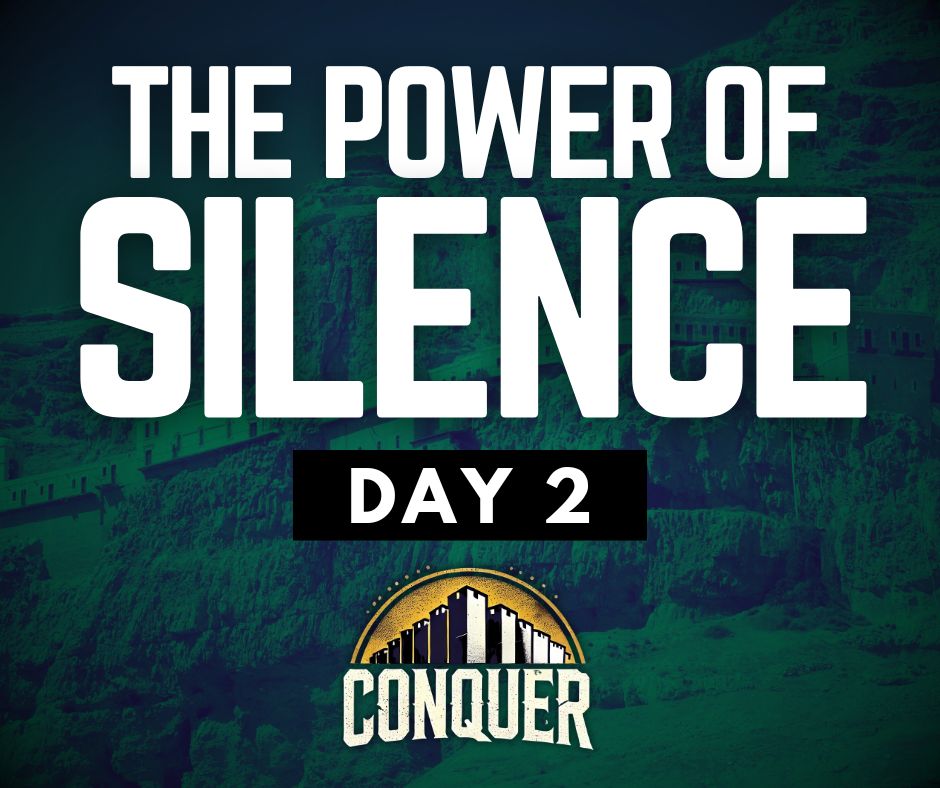When he was accused by the chief priests and the elders, he gave no answer. Then Pilate asked him, ‘Don’t you hear the testimony they are bringing against you?’ But Jesus made no reply, not even to a single charge—to the great amazement of the governor.
Matthew 27:12-14 (NIV)
In the face of adversity, our natural instinct is often to defend ourselves vociferously. We feel compelled to shout louder, argue harder, and prove our point at all costs. But the story of Jericho in Joshua 6 presents us with a counterintuitive strategy: the power of silence.
When the Israelites approached Jericho, they expected a typical battle strategy. Shouting! Rallying! Battlecries! Weapons clanging! Intimidation! This was the norm for ancient warfare, a cacophony designed to boost morale and strike fear into the enemy’s heart. The Israelites, fresh from their desert wanderings, were likely anticipating a chance to finally unleash their pent-up energy and frustration against the formidable walls of Jericho. In their minds, the louder and more intimidating they could be, the better their chances of victory.
But God had a different plan. He commanded silence. “Do not give a war cry, do not raise your voices, do not say a word until the day I tell you to shout. Then shout!” (Joshua 6:10). This silence was not passive or weak; it was a powerful spiritual weapon.
“Sometimes you don’t have to fight the battle. Sometimes you just have to be still and let God fight it for you.” – Joyce Meyer (American Charismatic Christian author and speaker)
This quote beautifully captures the essence of using silence as a spiritual weapon. It’s not about inaction, but about trusting God to fight our battles. The Israelites’ silence at Jericho was an act of faith, a declaration that they trusted God’s unconventional methods more than their own strength or strategies.
We see this principle echoed in the life of Jesus. When faced with accusations before Pilate, Jesus remained silent. His silence was not defeat; it was strength. It was not weakness; it was wisdom. In His silence, Jesus demonstrated complete trust in God’s plan, even when that plan led to the cross.
Silence can be a powerful response in our spiritual battles too. When faced with criticism, accusations, or attacks, our silence can demonstrate our trust in God’s defense, prevent us from saying things in anger that we might regret, give us time to pray and seek God’s wisdom, confound our adversaries who expect argument and defensiveness, and allow God’s voice to be heard more clearly in the situation.
Practicing silence as a spiritual weapon requires discipline and faith. It means resisting the urge to always have the last word. It means trusting that God sees, knows, and will act on our behalf in His perfect timing.
The silence of the Israelites at Jericho was not forever. There came a time when God commanded them to shout. Similarly, there are times when we need to speak up, to defend truth, to advocate for justice. The key is discerning God’s timing and following His lead.
Godseekers, in your spiritual battles, consider the weapon of silence. Like the Israelites circling Jericho or Jesus standing before Pilate, your quiet trust in God can be far more powerful than any words you might speak.
Prayer
Heavenly Father, teach us the power of silence in our spiritual battles. Give us the wisdom to know when to speak and when to remain quiet, trusting in Your defense. Help us to resist the urge to always justify ourselves, and instead, let our silence be a testimony of our faith in You. May we, like Jesus, find strength in quiet trust, even in the face of accusations or attacks. In Jesus’ name, Amen.
Personal Reflection
- Can you recall a time when remaining silent in a conflict or challenging situation led to a positive outcome?
- In what current situation might God be calling you to use the weapon of silence?
Step of Faith
Today, when faced with a criticism or conflict, practice responding with silence instead of immediate defense. Use that moment of silence to pray, asking God for wisdom and the right response (if any) in His timing. Reflect on how this changes the dynamic of the situation and your own internal state.







